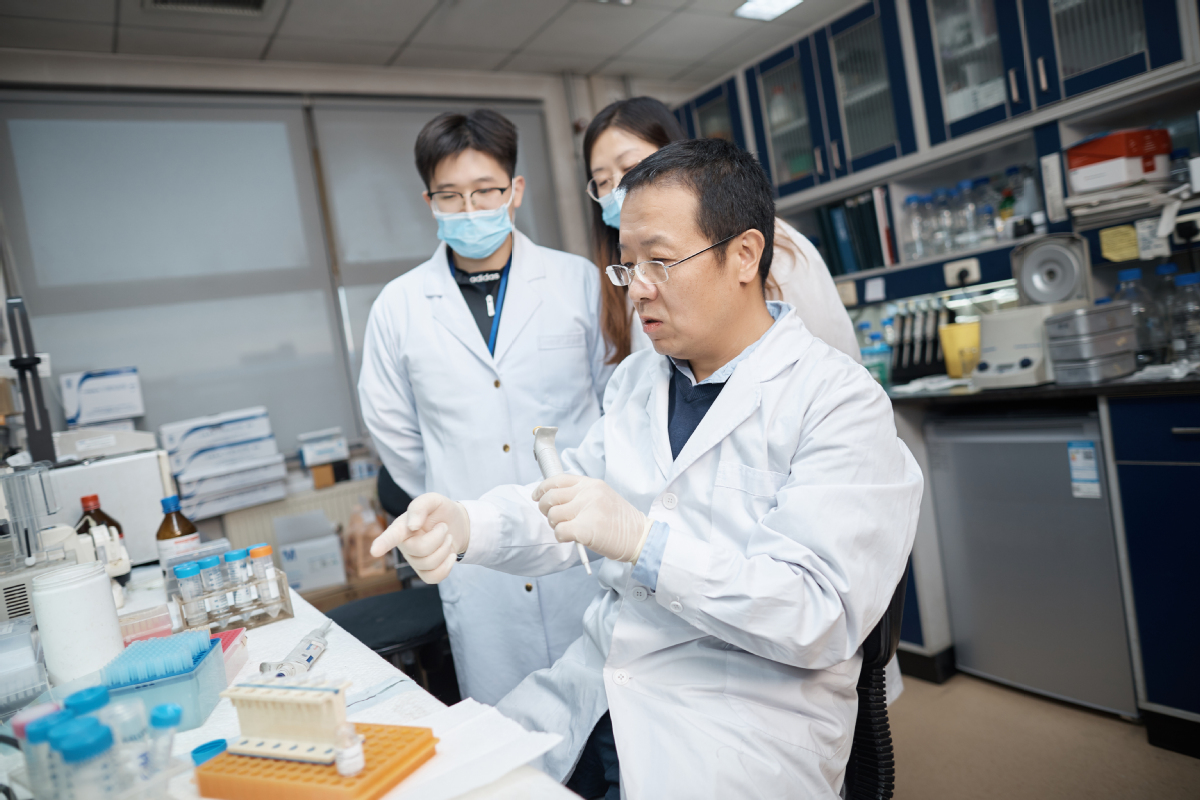Virus hunter recognized for key discovery


Researcher given award by US foundation for landmark work on hepatitis B
While many might view his work as a laborious trek into the unknown, virologist Li Wenhui treats it as an intimate conversation with nature.
"Conducting fundamental research is an inherently difficult and demanding job, but the joy of decoding the mysterious and unknown is unparalleled," said Li, a researcher at the National Institute of Biological Sciences in Beijing and a professor at the Tsinghua Institute of Multidisciplinary Biomedical Research.
"I always tell my students that the point is not to glamorize the pain and exhaustion involved, but to gain insights through analysis as if taking pleasure in talking with nature," he said.
For Li, his communication channel with the nature is built on an infinitely small agent-the virus.
More specifically, he zeros in on the virus receptor-the specific protein on membranes of human cells that provide the entry point for a virus to attach itself and replicate.
Discovering the protein is a key step in understanding viral infections and shedding light on research into drugs and vaccines that can block transmission of a virus.
Li, 50, finished his medical degree and a doctorate in pathogen biology in China before becoming a postdoctoral fellow at Harvard Medical School in the United States in 2001.
In 2003, he made a breakthrough by detecting the functional receptor for the virus that caused severe acute respiratory syndrome, which claimed more than 770 lives worldwide.
"It took us about four months to find the receptor-the first to do so in the world," he said.
"Looking back, that piece of research still looked very neat and swift."
























